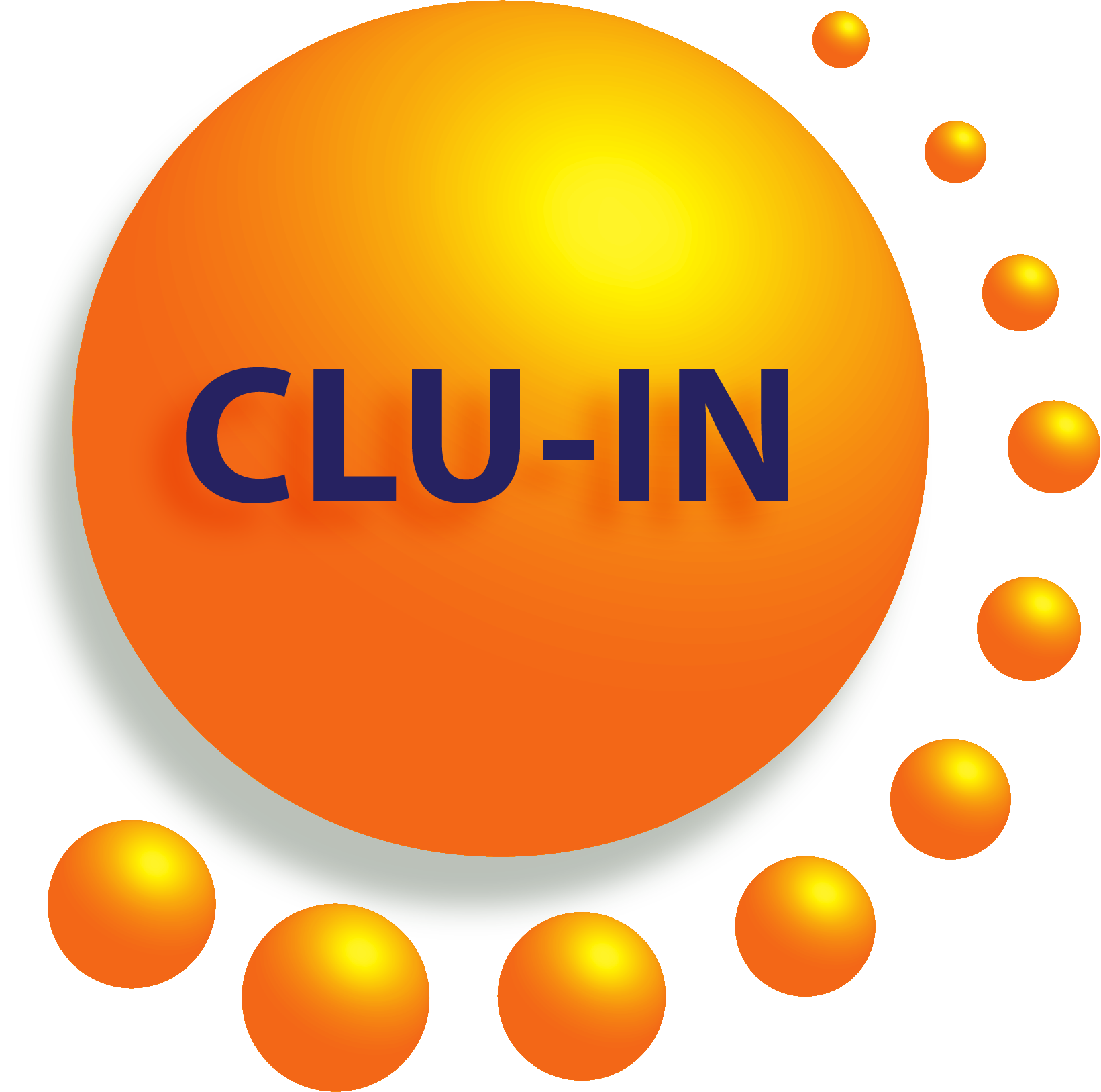SRP Progress in Research Webinar Series: Emerging Technologies in Occupational Health and Safety Training and Education - Session II
Sponsored by: NIEHS Superfund Research Program
The NIEHS Superfund Research Program (SRP) is sponsoring a Progress in Research webinar series, hosted by CLU-IN, to showcase federally funded researchers developing curricula and educational programs focused on emergent technologies in the sphere of occupational health and safety.
The three-part series will highlight researchers' projects, accomplishments, and demonstrate research products — included in this group of researchers are SRP's seven R25 grant recipients as well as participation from the NIEHS Worker Training Program (WTP) and the Center for Disease Control and Prevention's (CDC) National Institute for Occupational Safety & Health (NIOSH).
To learn about and register for the other sessions in this webinar series, please see the SRP website.
University of Minnesota | The Interdisciplinary Training, Education and Research Activities for Assessing and Controlling Contaminants from Emerging Technologies (InTERACCT) Program:
Rachael Jones, Ph.D., will describe the aims and progress made by the Interdisciplinary Training, education and Research Activities for Assessing and Controlling Contaminants from Emerging Technologies (InTERACCT) Program. The InTERACCT program is focused on developing course content for graduate students and continuing education in industrial hygiene through online asynchronous course modules that will be utilized in academic programs and in continuing education. In addition, the project offers several graduate research experiences, including a week-long summer intensive program for undergraduate STEM majors.
Johns Hopkins University | Program on Occupational Health and Safety Education on Emerging Technologies - Mid Atlantic Partnership (POccET MAP):
Gurumurthy Ramachandran, Ph.D., will present on the Program on Occupational health and safety education on Emerging Technologies — Mid Atlantic Partnership (POccETMAP) — a collaboration across
Johns Hopkins University, University of Maryland, George Mason University, and Old Dominion University to develop and widely distribute a web-based curriculum to prepare students in industrial hygiene, STEM disciplines, and occupational health and safety professionals with the skills necessary to address health and safety issues that arise in emerging technology areas. Other aims that Dr. Ramachandran will cover include creating lab and field-based experiences for graduate students, and the development of a Masters in Sustainability and Product Stewardship.
University of Michigan | Michigan-Ohio Occupational Research Education (MOORE) Program:
Representing the Michigan-Ohio Occupational Research Education (MOORE) Program are Stuart Batterman, Ph.D., and Kermit Davis, Ph.D., to discuss the overarching goal of leveraging activities at the University of Michigan, University of Cincinnati, and Michigan State University to develop and deliver training and research experiences for graduate students and professionals to advance skills in the field of occupational health and safety. They will expand on their efforts to examine advanced exposure assessment approaches applied to aerosols, indoor air quality and ventilation, and ergonomics, particularly in health care settings, including care in residential settings often performed by low wage and disadvantaged populations.
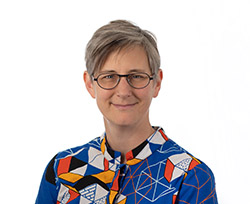 Rachael Jones, Ph.D., University of California, Los Angeles (rmjones@ph.ucla.edu)
Rachael Jones, Ph.D., University of California, Los Angeles (rmjones@ph.ucla.edu)
Rachael Jones, Ph.D., is a Professor and Chairwoman of the Department of Environmental Health at the University of California, Los Angeles (UCLA) Fielding School of Public Health, where she directs the Southern California Education and Research Center and the UCLA Center for Occupational and Environmental Health. Dr. Jones is a Certified Industrial Hygienist and conducts research about workplace exposures and exposure controls with a particular focus on issues related to infectious disease transmission in healthcare settings. Dr. Jones serves as the Chief Editor of Annals of Work Exposures and Health.
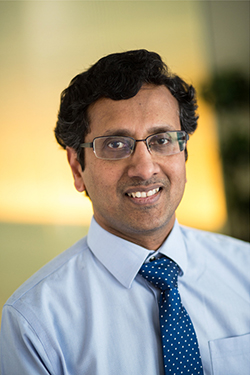 Gurumurthy Ramachandran, Ph.D., Johns Hopkins University (gramach5@jhu.edu)
Gurumurthy Ramachandran, Ph.D., Johns Hopkins University (gramach5@jhu.edu)
Gurumurthy Ramachandran, Ph.D., is a Professor and Deputy Chair in the Department of Environmental Health and Engineering in the Bloomberg School of Public Health at Johns Hopkins University. He is also the Director of the Johns Hopkins Education and Research Center for Occupational Safety and Health funded by the National Institute for Occupational Safety and Health. He has conducted research in various areas relating to human exposure assessment in occupational and non-occupational settings. His research has included the development of robust occupational exposure assessment strategies for a variety of airborne contaminants. He has served as a member of the Board of Scientific Counselors to the National Institute of Occupational Safety and Health and advisory committees for the National Academy of Sciences and the U.S. Environmental Protection Agency. He is also serving on the editorial boards of the Annals of Work Exposures and Health, and the Journal of Occupational and Environmental Hygiene.
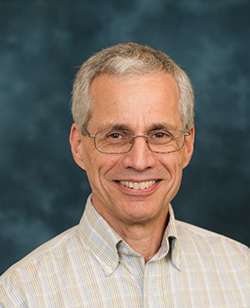 Stuart Batterman, Ph.D., University of Michigan (stuartb@umich.edu)
Stuart Batterman, Ph.D., University of Michigan (stuartb@umich.edu)
Stuart Batterman, Ph.D., is a Professor of Environmental Health Sciences and Global Public Health at the University of Michigan (UM) School of Public Health, and Professor of Civil & Environmental Engineering in the College of Engineering. At UM, he is Deputy Center Director of the Center for Occupational Health and Safety Engineering, and he leads the Exposure Assessment Core of the Michigan Center on Lifestage Exposures and Disease, the Environmental Toxicology and Epidemiology Program, and the Michigan-Ohio Occupational Research and Education Program. His teaching addresses environmental impact assessment, human exposure and health risk assessment, and environmental management. His research focuses on outdoor and indoor air pollutants, exposure assessment, environmental epidemiology, effects of pollution on vulnerable and sensitive populations, and occupational and environmental exposures. He is the public health representative on Michigan's Statewide Drinking Water Advisory Council and the Michigan Air Quality Advisory Council.
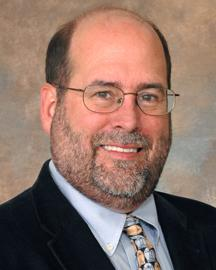 Kermit Davis, Ph.D., University of Cincinnati (daviskg@ucmail.uc.edu)
Kermit Davis, Ph.D., University of Cincinnati (daviskg@ucmail.uc.edu)
Kermit Davis, Ph.D., is a Professor at the University of Cincinnati where he is the graduate program director of the Environmental and Occupational Hygiene and Occupational Safety and Ergonomics programs. Dr. Davis is a past president of the Human Factors and Ergonomics Society (HFES) and a Fellow of HFES, the American Industrial Hygiene Association, and the International Ergonomics Society. His research has concentrated on reducing ergonomic stressors of healthcare workers and patients in healthcare settings (e.g. hospitals, long-term care facilities, and home healthcare).
Moderators:
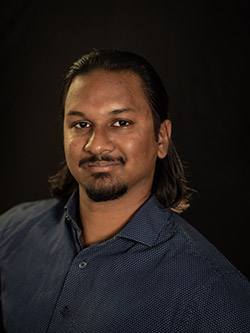 Eric Persaud, Dr. P.H., NIEHS WTP (eric.persaud@nih.gov)
Eric Persaud, Dr. P.H., NIEHS WTP (eric.persaud@nih.gov)
Eric Persaud, Dr. P.H., is a Health Specialist in the Worker Training Program of the Division of Extramural Research and Training at the National Institute of Environmental Health Sciences. As a Health Specialist, Dr. Persaud is primarily responsible for supporting evaluation efforts, fostering communication of the program, serving as an editor and writer in major documents and reports, and administering and analyzing grants and contracts related to the extramural training program. He received his Doctorate in Public Health from the Department of Environmental and Occupational Health Sciences, at the State University of New York Downstate Health Sciences University. He is a member of the Delta Omega Honorary Public Health Society and an inaugural recipient of the School of Public Health Lenard & Christine Szarek Fellowship Award.
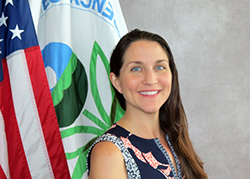 Jean Balent, U.S. EPA Technology Innovation and Field Services Division (balent.jean@epa.gov or 202-566-0832)
Jean Balent, U.S. EPA Technology Innovation and Field Services Division (balent.jean@epa.gov or 202-566-0832)
Ms Balent is on the staff of the EPA's Technology Innovation and Field Services Division where she has worked to collect and disseminate hazardous waste remediation and characterization information since 2003. Ms Balent manages the Clean Up Information Network website and actively supports online communication and collaboration resources available to EPA. She formerly worked with the US Army Corps of Engineers Environmental Engineering Division in the Buffalo District. Ms Balent was also a member of the SUNY-Buffalo Groundwater Research Group where she constructed and tested large scale models of groundwater flow. Ms Balent has also conducted research relating to the Great Lakes, environmental remediation, and brownfields re-development. She holds a Bachelor's degree in environmental engineering from SUNY-Buffalo and a Master's degree in Information Technology from AIU.
Webinar Slides and References:
-
 Slide Presentation for Rachael Jones, UCLA (on behalf of the University of Michigan) (1.36MB/PDF)
Slide Presentation for Rachael Jones, UCLA (on behalf of the University of Michigan) (1.36MB/PDF)
-
 Slide Presentation for Stuart Batterman, University of Michigan & Kermit Davis, University of Cincinnati (2.98MB/PDF)
Slide Presentation for Stuart Batterman, University of Michigan & Kermit Davis, University of Cincinnati (2.98MB/PDF)
Additional Resources:
- These materials will be available by
Thank you for participating in our webinar. We would like to receive any feedback you might have that would make this service more valuable.
Help & FAQs
- Frequently Asked Questions
- Content Questions?
Call Dylan Williams at 202-982-5717 or dylan.williams@nih.gov - Technical Problems?
Leave us a comment - Cancel Your Registration
- My Participation Records
- CEU Credits and PDHs
Zoom Resources
Before Webinar Day
This seminar will be delivered through Zoom. Participants are encouraged to update to the latest version of the Zoom application for the best experience.
If you are unable to install the Zoom application, most functions will be available if you join just using a modern web browser such as Chrome, Edge or Firefox. We strongly encourage you to run the Zoom Meeting Test prior to attending this webinar. Technical support on the day of the webinar will be very limited and subject to significant delays.
Backup Conference Call
If you cannot participate using online audio, you may join the optional call in line. After checking in for the live event using the instructions listed below, you will see several options to participate. Please click the links in option 4 to follow along by phone and obtain the call in number. If you cannot access the phone number, you may request the call in line from the event moderator in the Q&A or send an email to Jean Balent at balent.jean@epa.gov
Click on "Join Webinar" at the top of this screen, enter your exact first and last name as you registered and enter the number of people attending at your location (including yourself). You should then be taken to the Zoom meeting room. Join with Zoom Application: For those joining with the Zoom application, you may be prompted to sign with a zoom account or join as a guest without signing in.
If joining as a guest, you will be prompted to enter your name and email address. Remember your name, image, video or voice may be visible to others in the live event. When done, click "Join" When it is time for the live event to start, the meeting host will admit you to the live Zoom meeting. Join via web browser (without the Zoom Application): For those joining with a web browser, you may close any pop ups prompting you to download the Zoom app. The next window will allow you to enter your name (first name and last name) and check the box that you are not a robot. Click the blue join button. You may also be asked to provide your email address before joining the room. Remember your name, image, video or voice may be visible to others in the live event. When done, click "Join" When it is time for the live event to start, the meeting host will admit you to the live Zoom meeting. You may need to periodically refresh the browser window to confirm if the host has admitted you. The presenters will control what slide you are viewing. You may submit questions online for the instructors to answer during the webinar by typing in the "Q&A" area. It is not necessary to wait until the question and answer periods to submit questions. At the end of the webinar you will be guided to our feedback form and links to additional resources, including the complete presentation. These links will remain active after the webinar. Provided for your convenience. Importing or accepting the invitation within this iCalendar file is not required, and declining the invitation does not cancel your registration. For additional information on iCalendar, please see our
iCalendar Help It is EPA's policy to make reasonable accommodation to persons with disabilities wishing to participate in the agency's programs and activities, pursuant to the Rehabilitation Act of 1973, 29 U.S.C. 791. Any request for accommodation should be made to at or , preferably one week or more in advance of the webinar, so that EPA will have sufficient time to process the request. EPA would welcome specific recommendations from requestors specifying the nature or type of accommodation needed. EPA welcomes specific recommendations from requestors specifying the nature or type of accommodation needed. Please note that CLU-IN provides both alternate phone call-in options and closed captioning for all webinars, and requests for these specific accommodations are not necessary.
Webinar Day, Checking In
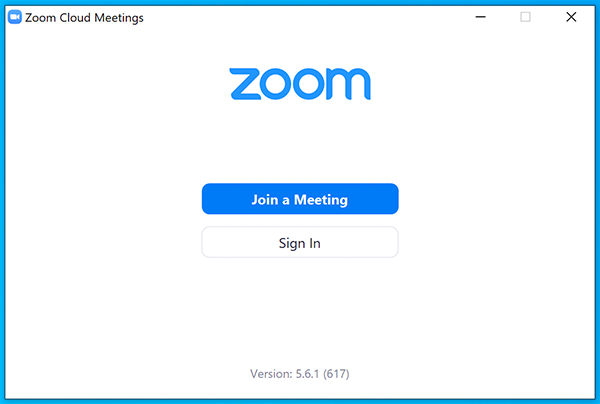

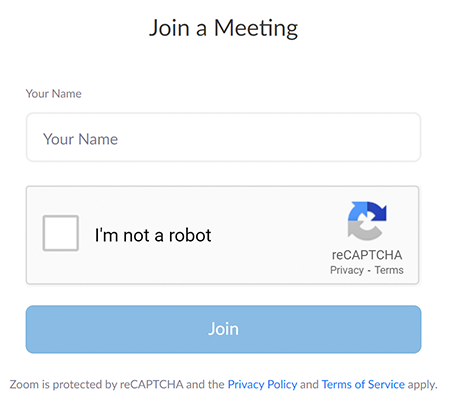
Moving Through Slides
Feedback & Links to Additional Resources
iCalendar File
Rehabilitation Act Notice for Reasonable Accommodation
Rehabilitation Act Notice for Reasonable Accommodation
It is EPA's policy to make reasonable accommodation to persons with disabilities wishing to participate in the agency's programs and activities, pursuant to the Rehabilitation Act of 1973, 29 U.S.C. 791. Any request for accommodation should be made to at or , preferably one week or more in advance of the webinar, so that EPA will have sufficient time to process the request. EPA would welcome specific recommendations from requestors specifying the nature or type of accommodation needed. EPA welcomes specific recommendations from requestors specifying the nature or type of accommodation needed. Please note that CLU-IN provides both alternate phone call-in options and closed captioning for all webinars, and requests for these specific accommodations are not necessary.
Webinar Recording
By participating in this CLU-IN webinar, you automatically agree to authorize recording of audio and visual content presented during this live event and consent to subsequent use of this recording in the public domain by the U.S. Environmental Protection Agency. This recording may include questions, comments and poll responses provided by you during the live event in addition to your name, voice, image or likeness. This recording will be made available after the conclusion of the live event as part of the CLU-IN webinar archives, and will remain available indefinitely. If you do not wish to consent to the recording, please do not join the live event, and contact Jean Balent at 202-566-0832 or balent.jean@epa.gov to discuss your concerns.
Content Disclaimer
This webinar is intended solely to provide information to the public. The views and opinions expressed as part of this webinar do not necessarily state or reflect those of the U.S. Environmental Protection Agency. It is not intended, nor can it be relied upon, to create any rights enforceable by any party in litigation with the United States, or to endorse the use of products or services provided by specific vendors. With respect to this webinar, neither the United States Government nor any of their employees, makes any warranty, express or implied, including the warranties of merchantability and fitness for a particular purpose, or assumes any legal liability or responsibility for the accuracy, completeness, or usefulness of any information, apparatus, product, or process disclosed, or represents that its use would not infringe privately owned rights.

